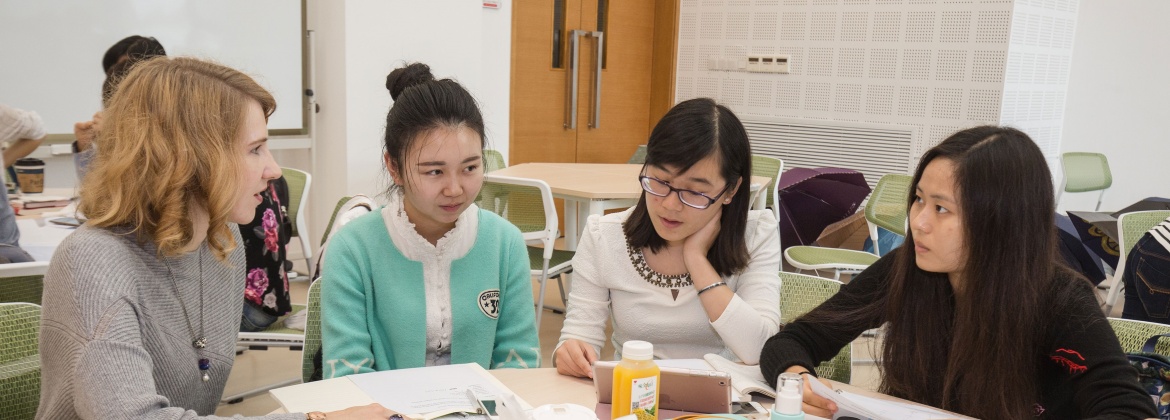Potential supervisors
School of Humanities and Social Sciences
Find potential supervisors from the Department of International Studies.
Scholarships
Apply for PhD Merit-Based Scholarship:
This type of scholarship is intended to support candidates with outstanding research programme. Prospective applicants seeking consideration for a merit-based scholarship may indicate their interest when submitting their application to the university’s doctoral programmes.
The school and University’s Postgraduate Research Scholarship Panel will conduct a comprehensive evaluation based on the applicants’ academic excellence, research potential, research experience, and achievements, and will recommend the most qualified candidates for the award.
More details can be found on the ‘How to Apply‘ page of the website.
The scholarship application is open only to applicants applying for full-time doctoral programmes. Detailed information please refer to Postgraduate Research Scholarships page.








Overview
We welcome applications from prospective students interested in undertaking a PhD programme with an expert in the Department of International Studies. We are an active and engaged community that will provide you with leading-edge research opportunities.
Our programme, based at Xi’an Jiaotong-Liverpool University, is a strategic research collaboration between XJTLU and the University of Liverpool. You will receive supervision from respected academics at both institutions. Upon successful completion of your programme, you will receive a University of Liverpool-issued degree, which is recognised by China’s Ministry of Education.
As a registered full-time PhD student, you may apply for a research visit to the University of Liverpool for up to six months. This travel option is typically undertaken during the second year of the PhD and is an opportunity to work with your Liverpool-based supervisor.
Our PhD students engage in a supportive research environment. The XJTLU Graduate School and the XJTLU School of Humanities and Social Science (HSS) work to foster this community through research seminars and conferences, as well as opportunities to acquire practical experience as research assistants and teaching assistants. This is in combination with training offered by the Doctoral College at the University of Liverpool.
Pursuing a full-time PhD typically involves three years of conducting research and one year of writing a thesis, supported by skills training and development. A full-time PhD student must submit a thesis within four years. A part-time PhD student must submit it in six years. XJTLU provides every registered PhD student with up to 16,500 RMB over the course of study for expenses related to attending academic conferences. The purpose of this fund is to support your academic experience and encourage the dissemination of research.
The PhD in International Relations offers supervision across a wide range of subjects, including most areas of international relations, area studies, history, international communications and politics.
Why should I do my PhD in International Relations at XJTLU?
The PhD in International Relations aims to produce scholars who will make an impact in their respective fields by virtue of their professionalism, disciplinary competence and ability to communicate ideas in a policy-relevant area. Our PhD candidates’ core studies are in areas including international relations theory, regionalism and regional integration, foreign policy analysis, international security, diplomacy, political economy, international communication, and cognate fields including area studies (countries or regions of Asia, Africa, Europe, the Americas), international law, international development (governance, sustainability, capacity building), modern history, sociology and international business.
Our PhD programme will encourage interdisciplinarity in accord with its commitment to area studies. This ensures that graduates of the programme are able to work at different levels of analysis and connect local, regional and global processes in ways that illuminate complexity in the world as a product of multiple factors.
The programme may also produce specialist research in area studies, including Asia, Europe, the Americas and Africa, that is historically and culturally informed, allowing meaningful and empirically informed comparisons. This will support region-specific knowledge that will enhance area specialism in China and abroad.
The overall aims of the PhD programme in International Relations are to:
Research areas
We welcome proposals from students interested in relevant areas of expertise, including:
Research environment and facilities
XJTLU’s academic staff members include experts in disciplines such as political science, history, law, sociology, and business and economics, and are supported by grant opportunities and professional development. All supervisory teams for PhD students consist of at least one supervisor who has supervised a PhD to completion, who will support and mentor the co-supervisor. Additionally, supervising staff have access to supervisory methods training provided by the Academic Enhancement Centre and mentoring by the Departmental Graduate Studies Officer. Regular progress reports and reviews as outlined in the programme specifications ensure that both candidate progress and supervisory support will be monitored.
The PhD in International Relations programme will provide the core supervisors; scholars based at the University of Liverpool will serve as co-supervisors. These co-supervisors will be appointed based on the convergence of research specialisms and the PhD research proposal. Also, the programme will draw on specialists across the Humanities and Social Sciences (HSS) cluster where relevant.